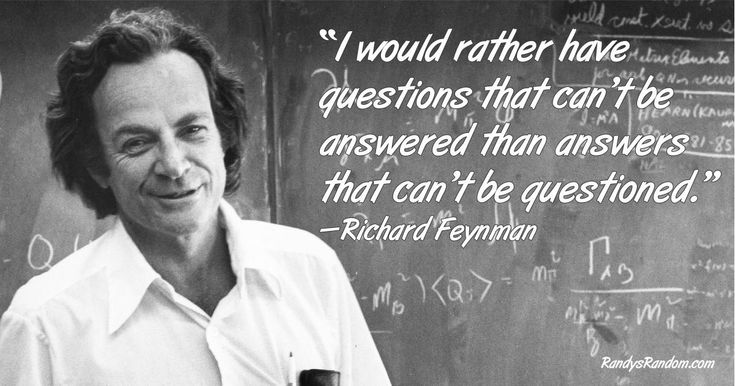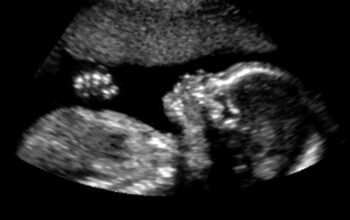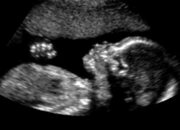Quantum physics, one of the most intricate domains of scientific inquiry, has often been characterized as a realm of paradoxes and counterintuitive phenomena. Richard Feynman, a luminary in the field, famously remarked on the strangeness of the quantum world. He noted that anyone who claims to understand quantum mechanics truly does not understand it at all. This assertion poses a compelling question: Is quantum physics as strange as Feynman suggested? To explore this query, it is imperative to delve into the foundational concepts and peculiarities of quantum mechanics, highlighting its implications and participatory role in reshaping our perception of reality.
The quantum world operates under a framework vastly different from classical physics. At the heart of this paradigm lie principles such as superposition, entanglement, and wave-particle duality. These concepts challenge our conventional notions of time, space, and causality. Superposition, for instance, permits particles to exist in multiple states simultaneously until measured. This phenomenon is beautifully illustrated in Schrödinger’s thought experiment involving a cat that exists in a state of both life and death until observed. Such scenarios evoke a sense of awe and perplexity, suggesting a universe governed by fundamental uncertainty.
Entanglement, another cornerstone of quantum physics, further complicates our understanding of reality. This peculiar interaction enables particles to become interconnected in such a manner that the state of one instantaneously influences the state of another, regardless of the spatial distance separating them. Einstein famously dismissed this notion, labeling it “spooky action at a distance,” as it defies the established principles of local realism. The implications of entanglement are profound, stirring discussions around information transfer, communication, and even concepts of causality itself. It challenges the classical view that objects are independent unless they interact directly.
Wave-particle duality represents another layer of strangeness inherent in quantum mechanics. This duality suggests that particles, like electrons and photons, exhibit both wave-like and particle-like properties, depending on the experimental context. The double-slit experiment serves as a quintessential demonstration of this phenomena, where particles display interference patterns characteristic of waves when not observed. However, the moment measurement is applied, they behave as discrete particles. This experiment underscores the fundamental role of observation in defining the properties of quantum systems, triggering philosophical debates about the nature of reality and existence itself.
The implications of quantum mechanics extend beyond mere intellectual curiosity; they promise transformative shifts in technology and our understanding of the universe. Quantum computing, for instance, capitalizes on the principles of superposition and entanglement to perform calculations at unprecedented speeds. This technological evolution has the potential to revolutionize fields such as cryptography, material science, and artificial intelligence, signifying a monumental leap in computational capabilities. The realm of quantum technology continues to burgeon, indicating that these initially bewildering concepts can yield practical solutions to real-world problems.
Moreover, the perennial strangeness of quantum mechanics invites us to reconsider our perception of reality. Classical physics, governed by deterministic laws, fosters an illusion of predictability. In contrast, quantum physics introduces inherent randomness and probabilistic outcomes, compelling us to concede that uncertainty is a fundamental aspect of the universe. As we grapple with this notion, we find ourselves entwined in a dialogue between science and philosophy, questioning the very essence of existence, consciousness, and the nature of the human experience.
Feynman’s quip about the incomprehensibility of quantum mechanics invites further reflection on the epistemological boundaries of physics. It insinuates that an infallible comprehension of reality may be fundamentally unattainable. This assertion posits an intriguing paradox: our quest for knowledge is incessantly constrained by the limitations of human understanding. Such insights urge us to embrace uncertainty as a catalyst for curiosity and exploration rather than a deterrent. The recognition of the oddities inherent in quantum behavior encourages a mindset that fosters innovation and adaptability.
Furthermore, quantum physics serves as a poignant reminder that our intuitions, shaped by everyday experiences, may often misguide us in interpreting the nuances of nature. The particles that comprise our universe do not adhere to the familiar axioms of classical mechanics. Instead, they traverse a landscape riddled with enigmas and challenges to logical reasoning. This necessitates the cultivation of a question-driven approach, allowing oneself to dwell in ambiguity while seeking understanding. Engaging with the oddities of quantum physics incites deeper inquiry into the fabric of reality itself, inviting us to confront our preconceptions and biases.
In summary, the assertion by Feynman regarding the strangeness of quantum physics resonates with profound implications. The principles of superposition, entanglement, and wave-particle duality elucidate the perplexing nature of the quantum realm, fundamentally altering our comprehension of reality. As we navigate through the intricacies of quantum mechanics, we are beckoned to embrace uncertainty, adapt our perspectives, and champion curiosity. This engagement with the strange yet compelling tenets of quantum physics not only enhances our scientific acumen but reinforces our capacity for imaginative exploration in a universe that is, indeed, stranger than we might have anticipated.












